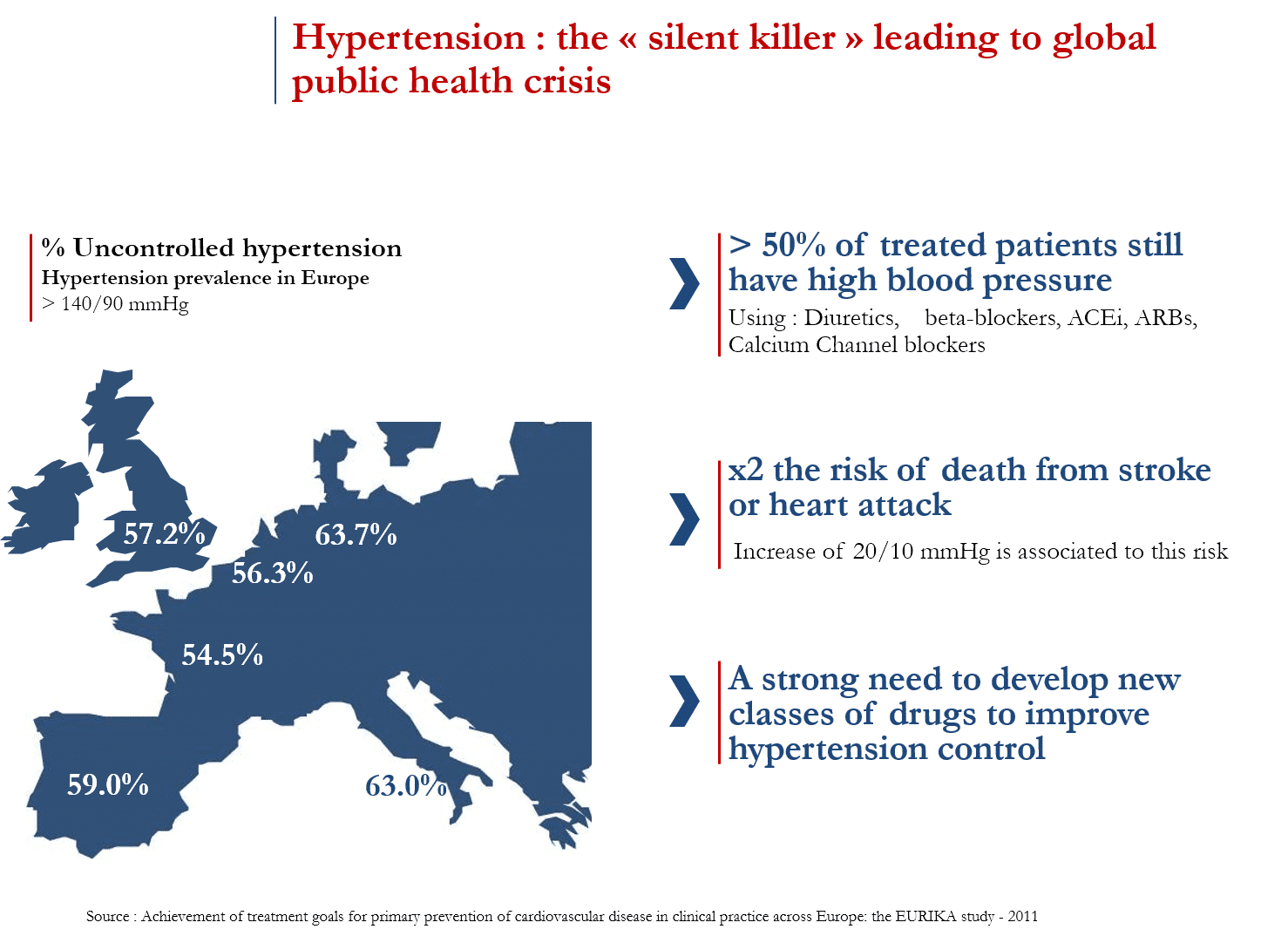High blood pressure
Hypertension is a chronic medical condition in which the blood pressure in the arteries is elevated : systolic blood pressure above 140mmHg and diastolic blood pressure above 90mmHg. Each year, hypertension indirectly leads to about 10 million deaths worldwide (9.4 million deaths are caused by high blood pressure complications – WHO (World Health Organization) – A global brief on hypertension, Silent killer, global public health crisis – 2013). It is assumed to be the cause of about half of strokes and heart diseases.
According to the latest WHO statistics, hypertension is rising sharply. One in 3 adults worldwide has high blood pressure.
In some African countries, up to half of the adult population suffers from high blood pressure. The number of hypertensive adults from now to 2025 could increase up to 60% and reach 1.56 billion.
Often multifactorial, hypertension can be severe or chronic, with or without signs of severity. Hypertension is said to be “resistant” if blood pressure remains high in spite of a therapeutic strategy including hygiene and dietary rules adapted to an anti-hypertensive tritherapy, including a diuretic. It is assumed that 15% of hypertensive patients have resistant hypertension. These patients remain a major concern for clinicians.
Research is nowadays mainly oriented towards these resistant forms of hypertension in order to provide new therapeutic offers.
A major public health concern, arterial hypertension is still at the center of therapeutic concerns. There is still a strong medical need to improve high blood pressure control.


